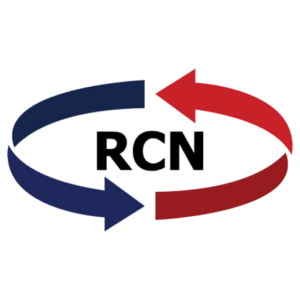A Step-by-Step Guide: How to Rent Out Your Condo
Step 1: Check Your Eligibility
Before you list your condo for rent, it’s crucial to confirm your eligibility. Unlike the process for HDB flats, renting out condos doesn’t require waiting for the property to reach a Minimum Occupation Period (MOP) as there isn’t one, nor is there a non-citizen quota to consider. That said, you must comply with specific regulations before you can rent out your condo, including:- You can’t rent out the entire unit or any room for less than three months without approval from the Urban Redevelopment Authority (URA).
- The occupancy cap rule stipulates that no more than six unrelated tenants may reside in your condo unless it is occupied by a single family without subletting.
Step 2: Calculate Your Costs and Determine Your Pricing
Setting the right rental price for your condo is crucial for attracting tenants and ensuring profitability. Begin by calculating all your ongoing costs, such as maintenance fees, property taxes, and mortgage payments, if applicable. It’s also important to research the local rental market to understand the competitive rates for properties similar to yours. Consider factors like location, size, and amenities these comparable condos offer. Pricing your condo competitively, while ensuring it covers all your expenses, will help in attracting prospective tenants quickly and securing a steady income from your rental property.Step 3: Partially Furnish the Unit
Enhancing the appeal of your condo through partial furnishing can significantly increase its rental value. Including essential and stylish furniture like beds, sofas, and dining tables not only adds convenience for tenants but also makes the space more inviting, which can justify a higher rental price. Opt for furnishings that are in excellent condition and choose designs that are neutral yet modern to appeal to a broader demographic. This strategy not only enhances the aesthetic appeal of your condo but also positions it as a more desirable option in the rental market.
Step 4: List Your Property
Effectively marketing your condo begins with a comprehensive listing. Utilise popular digital marketing tools and real estate platforms to reach a wide audience. Include professional, high-quality photos that showcase the best features of your property, and write a detailed description highlighting key amenities and nearby attractions such as schools, parks, shops, and public transport options.
Strong online visibility is crucial; therefore, investing in professional photography and copywriting services can significantly enhance the attractiveness of your listing, drawing more attention and increasing the likelihood of renting your property swiftly.
Step 5: Conduct Viewings
Arranging and conducting viewings is a crucial step in the rental process. Be flexible with your viewing times to accommodate the schedules of potential tenants, making it easier for them to visit your property. Prior to each viewing, ensure that the condo is impeccably clean and well-organised, as a tidy and attractive presentation can significantly enhance the perceived value of your property. This attention to detail will make a favourable impression on potential tenants and can greatly increase the likelihood of renting out your unit swiftly.
Step 6: Background Check, Collection of LOI and Good Faith Deposit
Once you’ve identified a prospective tenant, it’s important to conduct a comprehensive background check to confirm their rental history and assess their financial reliability. Upon satisfactory completion of this check, collect a Letter of Intent (LOI) along with a good faith deposit. The LOI expresses the tenant’s intention to rent, and the deposit acts as a financial commitment that secures their interest in the property. This step not only ensures the sincerity of the tenant’s intentions but also provides you with financial security as you move forward with finalising the rental agreement.
Step 7: Issue Tenancy Agreement
Before you can register your tenant, you’ll need to first draft and issue a tenancy agreement that specifies the condo rental terms and conditions. This document should cover critical aspects such as the rental amount, payment schedule, responsibilities for maintenance, and other essential stipulations. Both parties must review and agree to these terms.
To ensure that the agreement complies with local laws and regulations, it’s advisable to seek legal assistance. Having a legally sound contract protects both the landlord and the tenant and helps prevent potential disputes during the tenancy period.
Elevate Your Property Management Skills with Real Centre Network
Successfully renting out your condo demands meticulous planning and careful execution of each step outlined, ensuring a smooth transition for both you and your tenants. To further enhance your expertise and position yourself as a knowledgeable landlord, consider enrolling in specialised real estate courses offered by Real Centre Network. These courses cover a wide range of topics, including advanced property management techniques and the legal aspects of real estate in Singapore.
Moreover, if you’re looking to broaden your entrepreneurial skills within the real estate sector, we also provide entrepreneurship training specifically designed for real estate professionals. This training will equip you with the tools and insights needed to not only manage rental properties more effectively but also to explore new opportunities and innovative strategies in the real estate market. With the right education and preparation, you can maximise the potential of your rental property and achieve substantial financial rewards.
